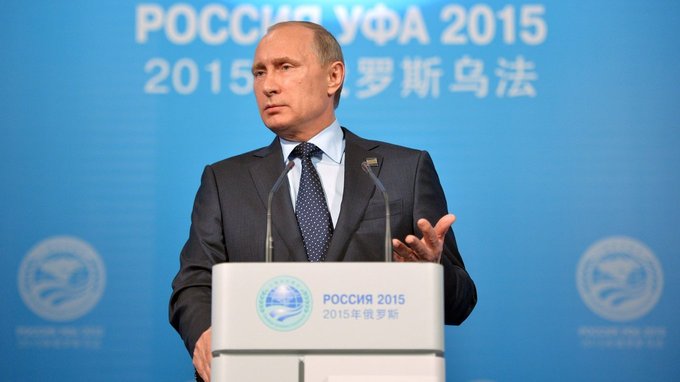Russia’s government is discussing a proposal to turn on the fiscal taps in the biggest domestic spending spree since President Vladimir Putin last ran for re-election in 2012, officials said.
The Kremlin is considering a plan that will raise outlays on transport and roads by about 30 percent over the next three years and provide a boost of about 20% to spending on health care and education, RFE/RL reported, quoting Kremlin economic aide Andrei Belousov.
Details of how the increases might be financed haven’t yet been worked out, though cuts to spending in areas like security, as well as tax increases and a wider deficit, are among the options, other sources said, asking not to be identified because the information isn’t public.
Belousov is spearheading the proposed budget overhaul, they said. Some of the moves were initially outlined by former finance minister Alexei Kudrin, according to a presentation by his research center that was seen by Bloomberg.
Business daily Vedomosti earlier reported that Russia may shift budget expenditures to social needs while cutting other spending or boosting tax collection to accommodate the increase.
The proposed boost would start to take effect in late 2018, with most of the effort focused on 2021-2022, two of the people said. That will bring spending on health care, education, and infrastructure up by 2.3% of the gross domestic product, they said. At present, expenditures on the three amount to about 9% of GDP.
“There’s a risk that this will be limited to empty words in support of the need to reform, but in reality little will be done,” said Vladimir Tikhomirov, chief economist at BCS Financial Group, a Moscow brokerage. “The economic policy that’s currently being conducted is a dead end, it doesn’t produce the effect of economic growth or an improved standard of living.”
Putin faces a little challenge as he looks to win a fourth presidential term in the election in March. But incomes have been slow to recover as Russia stumbles out of the longest recession since he first took power almost two decades ago.
The government had been planning to hold spending on health, education, and infrastructure little changed over the next few years as part of a drive to keep the budget deficit in check amid low oil prices.












